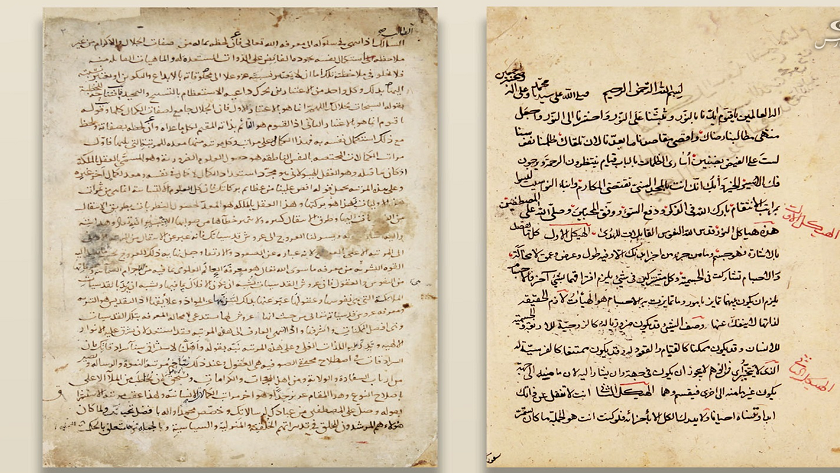Iran Press/ Iran news: Trained in Avicennan Peripateticism, Shihab al-Din al-Suhrawardi (1154–1191) has become the eponym of an ‘Illuminationist’ (ishraqi) philosophical tradition. Since none of his works was translated into Latin, he remained unknown in the West. However, a number of philosophical circles in the Islamic East studied his works from the 13th century onwards.
 Suhrawardi was born in Suhraward, a village near the present city of Zinjan
Suhrawardi was born in Suhraward, a village near the present city of Zinjan
Suhrawardi's life
Shihab al-Din Yahya ibn Habash ibn Amirak Abu 'l-Futuh Suhrawardi, known as al-Maqtul (the Slain) in reference to his execution, and usually referred to as Shaykh al-Ishraq after the Illuminationist philosophy (hikmat al-ishraq) which he espoused, was born in ah 549/ad 1154 in the village of Suhraward in northwest Iran.
 Statue of renowned Iranian philosopher Suhrawardi
Statue of renowned Iranian philosopher Suhrawardi
After studying in Maraghah (with Majd al-Din al-Jili, who also taught Fakhr al-Din Al-Razi) and Isfahan, he passed several years in southwest Anatolia, associating with Seljuq rulers and princes, before moving to Aleppo in ah 579/ad 1183. Here he taught and became a friend of the governor, al-Malik al-Zahir al-Ghazi (son of the Ayyubid Salah al-Din, famous in European literature as Saladin), who later also befriended Ibn al-'Arabi. However, he fell foul of the religious authorities, and was executed in ah 587/ad 1191 on the orders of Salah al-Din, in circumstances which remain unclear but which involved charges of corrupting the religion and allegations of claims to prophecy, and may also have had a political dimension.
 Mauseleum of Suhrawardi in Syria
Mauseleum of Suhrawardi in Syria
Philosophy of Illumination
Al-Suhrawardi, whose life spanned a period of less than forty years in the middle of the twelfth century AD, produced a series of highly assured works that established him as the founder of a new school of philosophy in the Muslim world, the school of Illuminationist philosophy (hikmat al-ishraq). Although arising out of the peripatetic philosophy developed by Ibn Sina, Suhrawardi's Illuminationist philosophy is critical of several of the positions taken by Ibn Sina, and radically departs from the latter through the creation of a symbolic language to give expression to his metaphysics and cosmology, his 'science of lights'.
 Suhrawardi greatly influenced other Persian thinkers
Suhrawardi greatly influenced other Persian thinkers
The fundamental constituent of reality for al-Suhrawardi is pure, immaterial light, than which nothing is more manifest, and which unfolds from the Light of Lights in emanationist fashion through a descending order of lights of ever diminishing intensity; through complex interactions, these, in turn, give rise to horizontal arrays of lights, similar in concept to the Platonic Forms, which govern the species of mundane reality.
 Suhrawardi is a renowned figure in Persian culture
Suhrawardi is a renowned figure in Persian culture
Suhrawardi also elaborated on the idea of an independent, intermediary world, the imaginal world (alam al-mithal). His views have exerted a powerful influence down to this day, particularly through Mulla Sadra's adaptation of his concept of intensity and gradation to the existence, wherein he combined Peripatetic and Illuminationist descriptions of reality.
 Suhrawardi remains an influential philosopher in Persian thought
Suhrawardi remains an influential philosopher in Persian thought
Suhrawardi legacy
Suhrawardi's views have exerted a powerful influence down to this day, particularly through Mulla Sadra’s adaptation of his concept of intensity and gradation to existence, wherein he combined Peripatetic and Illuminationist descriptions of reality.
Around the mid-20th century, Henry Corbin worked relentlessly to edit and publish Suhrawardi’s works, efforts that generated much interest in his novel philosophical system, which a new generation of scholars rekindled in the 1990s.
Read More:
Iran observes Suhrawardi commemoration day
The Leader stresses importance of teaching philosophy
Ashkan Salehian

